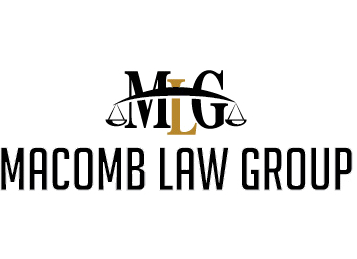When a patient is injured in a motor vehicle accident, it can be difficult to know the process for getting your accounts paid. Especially after recent changes to the process of medical billing and no-fault claims, you need to know what to do to protect your right to payment before the patient even walks in the door.
Who to Bill: Auto Insurance, Medical Policies, or Medicaid
Whether you are an administrator of a large hospital or a home-healthcare worker with a single client, you will face many of the same hurdles in getting your accounts paid after a motor vehicle accident. Your medical billing depends on knowing as much as you can about the patient’s insurance situation before they even receive treatment, including whether:
- The patient has a no-fault auto insurance policy
- They have a claim based on a spouse, household family member, or a driver or owner of a vehicle in the crash
- They plan to (or have already) file a claim with the Michigan Assigned Claims Plan (MACP)
- They have private or employer-provided health insurance
- Their health and auto insurance policies are coordinated
- They receive health insurance through Medicaid or Medicare
One common defense to medical billing and no-fault claims is that the invoices were submitted to the wrong provider. Issues of priority between auto insurers, coordination of benefits between health and auto insurance, and the validity of policies can all come between you and getting your accounts paid. Gather the policy information and claim numbers (if any) for all available insurance policies. Then you and your medical provider attorney can sort out which policy will apply and submit your medical billing on time once treatment is complete.
When to File the Medical Billing Claims
When a patient requires ongoing medical treatments for a condition or injury caused by a motor vehicle accident, it can be hard to know when to file the medical billing claim. In a busy doctor’s office billing and claims can sit for months before they get submitted. But waiting too long can create its own barrier to getting your accounts paid by the no-fault provider.
All medical provider claims are subject to the “one year back rule”. The Michigan No-Fault Act requires all medical providers and patients to file claims for treatment within one year to the day of when the treatment was rendered, or the insurance company last paid for treatment. That statute of limitations applies to both filing the claim and the lawsuit to enforce it, so it is crucial that medical providers stay up-to-date with their medical billing and no-fault claims.
How to Protect Your No-Fault Claims
One of the trickiest questions for doctors and hospitals in recent years is how they can protect their no-fault claims when a patient doesn’t want to sue. For years, a medical provider who had submitted bills and been unreasonably denied payment could file a complaint under the Michigan No-Fault Act to get their accounts paid (with interest and attorney fees in many cases).
However, in 2017, a Michigan Supreme Court case, Covenant Med Ctr Inc v State Farm Mut Auto Ins Co, changed the rules. The case said that the right to collect no-fault claims belongs to the patient, not the doctor. Because the statute didn’t grant independent standing to doctors, hospitals, or other medical providers, the court said they had to sue their patients, not the insurance company directly, when their medical bills went unpaid.
Since Covenant, doctors and their attorneys have had to get creative to protect their right to medical expenses under the No-Fault Act. While medical providers cannot sue on their own behalf, the courts have said that they can sue on their patients’ behalf, as long as the patient signs a valid assignment of claims after the expense is incurred (meaning once the particular treatment is done).
The wording, timing, and enforcement of these assignments are all tricky, and insurance defense attorneys are going after them every chance they get. That’s why it is so important to have an experienced medical provider attorney help you through the process, and get your accounts paid.
The Macomb Law Group, is a personal injury law firm in Clinton Township, MI. Our auto insurance claims attorneys can help you protect your no-fault benefit rights and get your accounts paid. If you have outstanding no-fault provider claims, contact Macomb Law Group and get our team working for you.
Author
-

I began working in personal injury law more than 20 years ago, starting as a law clerk during my first year of law school at Wayne State University School of Law in Detroit. After passing the bar exam in 2002, I went on to become a partner at a series of law firms before opening the Macomb Law Group in 2017.

